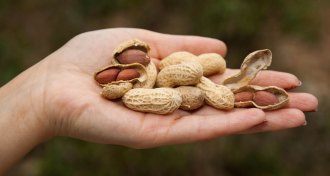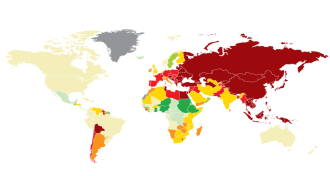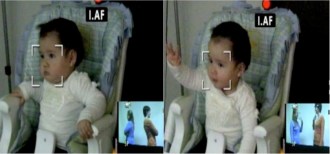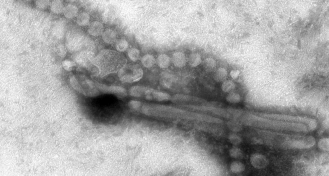Humans
Sign up for our newsletter
We summarize the week's scientific breakthroughs every Thursday.
-
 Neuroscience
NeuroscienceProsthetic provides sense of touch to man who lost hand
A new prosthetic hand restores a sense of touch by stimulating nerves in the arm.
-
 Genetics
GeneticsChemical changes to genes make twins’ pain differ
Chemical changes to genes may make identical twins experience pain differently.
-
 Health & Medicine
Health & MedicineOvercoming peanut allergy requires maintenance for most
In small study, nearly all people who stopped eating the legumes daily later experienced an allergic reaction.
By Nathan Seppa -
 Humans
HumansDNA suggests humans moved back into Africa
About 3,000 years ago, human populations from western Eurasia migrated back into eastern Africa, specifically Ethiopia.
-
 Health & Medicine
Health & MedicineShould your kid eat organic? The answer is complicated
The science behind kids’ pesticide exposure is complicated and patchy.
-
 Neuroscience
NeuroscienceFootball helmet redesign can reduce concussion risk
No helmet will ever eliminate the risk of sustaining a concussions during a football game. But tweaking the design may slow the speed of head movements after a hit and reduce the risk of brain trauma.
-
 Health & Medicine
Health & MedicineSmoking equality
A study of tobacco smoking patterns reports that more men than women smoke in every country except Sweden.
-
 Health & Medicine
Health & MedicineYour baby knows who your real friends are
Infants are surprisingly good judges of who ought to be friendly to each other.
-
 Health & Medicine
Health & MedicineTumors grow faster in cancer-prone mice given vitamins
The tumors killed the mice twice as fast as early-stage lung lesions in mice not given the antioxidants, researchers report.
-
 Health & Medicine
Health & MedicineImmunotherapy attacks aberrant cervical growth
The treatment might stop cancers before they arise.
By Nathan Seppa -
 Humans
HumansNeandertal hot spots highlighted in modern humans’ DNA
Mating with evolutionary cousins produced genetic trade-offs for Stone Age people.
By Bruce Bower -
 Health & Medicine
Health & MedicineH7N9 flu makes a comeback
Scientists warn that the risk that the illness could spread remains.